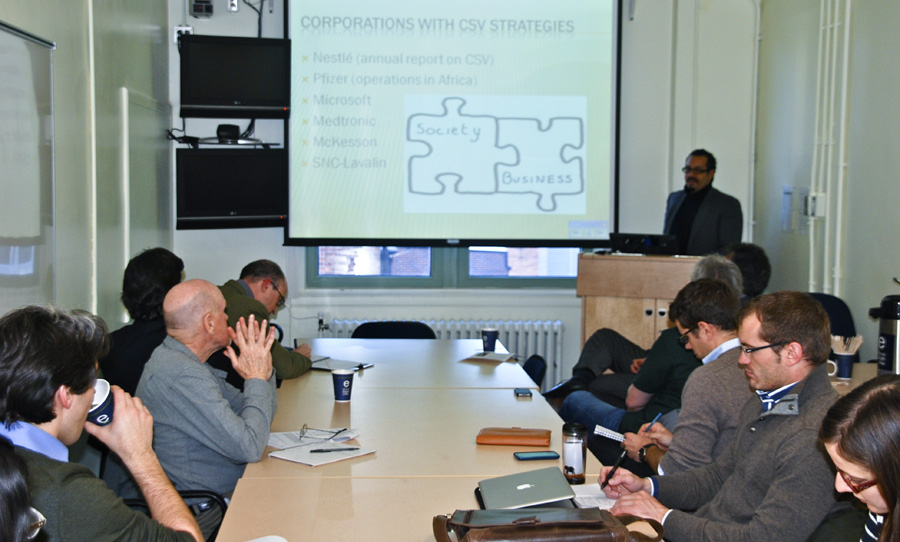On Jan. 18, the Institute for Studies in International Development (ISID) hosted a seminar by Jean-François Gascon, the vice-president of capacity building at SNC-Lavalin. The first event in a speaker series organized by ISID, Gascon’s presentation focused on explaining the concept of “Creating Shared Value” (CSV).
Specializing in project management, SNC-Lavalin is one of the largest international engineering and construction firms in the world, and is headquartered in Montreal. Recently, the company has been the subject of news headlines across Canada, concerning financial controversies over a hydroelectric dam scandal, unexplained transactions, and deposits in Libya.
According to Gascon, CSV is a business strategy that connects current social values with big business expansions.
“The key element here is the convergence of social progress, … and the competitiveness of the company,” Gascon said. “CSV is all about how your company takes its place in the economy, and values the convergence of economics and societal benefits.”
Corporations with CSV strategies, such as Nestlé, Microsoft, Pfizer, and SNC-Lavalin use their economic strategies to also fulfill responsibilities of social and infrastructural improvements in developing countries, by creating local jobs through the projects they manage.
SNC-Lavalin, which has a large presence and heavy influence in developing regions such as Latin America and Africa, also has a very large environment sector, which Gascon claims “differentiates SNC-Lavalin from [its] competitors.”
In 2007, SNC-Lavalin began implementing the “Local Resource Development Initiative” (LDRI) in current engineering projects abroad. Gascon explained that LRDI is a new division that highlights the importance of local produce, labour, and work. It aims to create and improve developing countries’ infrastructure and socio-economic situations through a “holistic approach.”
“[The LRDI’s aim is] one of developing and empowering local workers, companies and communities through training, mentorship, and capacity building,” Gascon said.
Gascon explained to the audience that the LRDI attempts to create shared value and maximize local benefits by increasing employability for the local workforce, while reducing project costs during construction. The project trains workers in the host countries, and prepares them for construction work, which is a sustainability strategy fully integrated during the construction phase.
“[The LRDI addresses] government requirements for community expectation on positive economic impacts of a mega project,” Gascon said.
According to Gascon, the LRDI has been successful in many countries, notably Afghanistan, Madagascar, and most recently, Algeria. The initiative has been widely supported by local communities, and has even succeeded in securing involvement with First Nations groups in Saskatchewan.
The seminar, held in Peterson Hall on the McGill campus, attracted an audience of McGill students, alumni and staff, as well as Montreal citizens interested in the seminar’s theme of corporate social responsibility. Many attendees explained that they had come to learn about the new shift in modernization centered on CSV.
Becca Dooley, U3 management and head of a sustainability group in the faculty of management, was enthusiastic about Gascon’s seminar, despite not being an international development student.
“I found a lot of value in this talk, as there was a lot of overlay in what we learn in class as well,” she said.
Kathryn Helin-Glick, U3 economics and international development studies, expressed personal interest in the “other side” of corporate shifts.
“Usually economically, [profit-maximization corporate shifts are] basically [all] exploitation,” Helin-Glick said. “So it’s fascinating to see companies adopt these strategies that are mutually beneficial to themselves, and where they’re operating.”
Following the seminar, Philip Oxhorn, director of the ISID, elaborated on the institute’s motivation for organizing a presentation by Gascon within the ISID seminar series.
“[Corporate involvement at the international level is] one of the key issues facing development everywhere, and Canadian companies are all over the world,” Oxhorn said. “[So] it’s important that international development students understand how corporations see their roles in these countries.”









